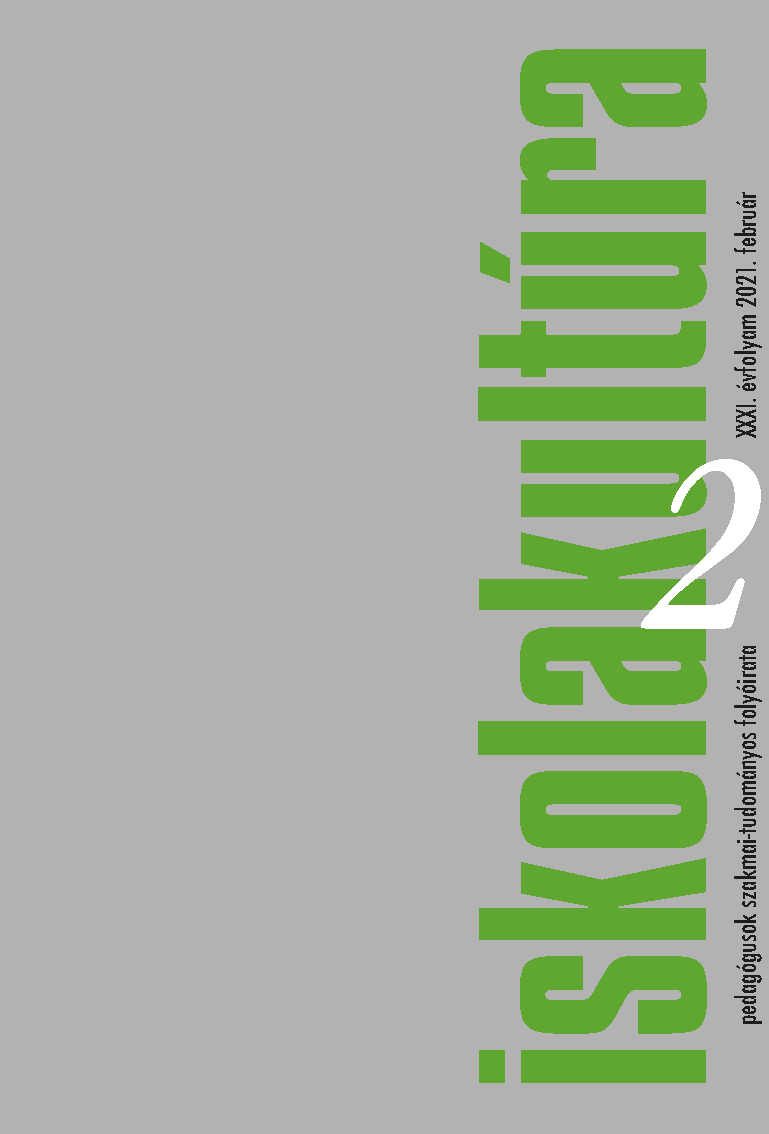Experiences and practice of online teaching from the teacher’s point of view
Main Article Content
Abstract
We conducted a survey among educators about the forced online teaching during coronavirus lockdown in Spring 2020. The aim of the study was to get an accurate picture of the online teaching-learning. On the one hand the questionnaire examined the type of help teachers had received and had asked for, on the other hand the changes in their well-being and in their educational practices, both in terms of methods used and their judged effectiveness. Finally, teachers were also asked about their relationship with students and students’ assumed well-being. Our results show that although educators have received significant help, it has not come from those whom they had asked it from. Basically, they would have liked to get more help from colleagues who were proficient in IT, and they were overwhelmed by the help they received from the heads of the institutions, the work community, friends, and other colleagues. The work they invested increased significantly during online education, but they were less able to judge students’ knowledge and so they decided to grade students’ work less rigorously. Despite teachers’ increased attention to students’ well-being, deterioration in student well-being, attitudes toward learning, and disturbed daily routines were reported. The number of students' independent exercises increased significantly and the proportion of tasks requiring students’ collaboration (pair and group tasks) decreased. It can be seen that there were significant differences between teachers in their choice of methods and their effectiveness. The source of difficulties was investigated in light of methods used. Drawing on information gained in this research suggestions for possible directions towards changes were made.
Downloads
Article Details
References
Barth, A. (1992): Burnout bei Lehrern: Theoretische Aspekte und Ergebnisse einer Untersuchung. Hogrefe
Bashian, A. (1989): Expanding the role of the school psychologist through peer tutoring programs. Kézirat.
Benkovics-Parádi Krisztina (2017): A kiégés jelensége a pedagóguspályán. In: N. Kollár K. Szabó É. (szerk.): Pedagógus pszichológiai kézikönyve 3. kötet 35. fejezet Budapest, Osiris.112-134.
Csapó Benő (2015) A magyar közoktatás problémái az adatok tükrében. Iskolakultúra 25/7–8. DOI: 10.17543/ISKKUL. T.2015.7–8.4
Falus Iván szerk. (2007): Didaktika. Nemzeti Tankönyvkiadó
Forrás-Biró Aletta (2019): Tanulásmódszertan és tanulástámogatás a közoktatásban. PhD. disszertáció ELTE
Hamre, B. K., & Pianta, R. C. (2006): Student-Teacher Relationships. In G. G. Bear & K. M. Minke (Eds.), Children's needs III: Development, prevention, and intervention (p. 59–71). National Association of School Psychologists.
Holecz Anita (2006): Pedagógusjelöltek és pedagógusok személyiség- és megküzdési jellemzői. Alkalmazott Pszichológia, 8 (4), 22–40.
Jakab, G. (2020). ISKOLA - járvány idején (1. rész). Iskolakultúra, 30(9), 64-76. https://doi.org/10.14232/ISKKULT.2020.9.64
Imre Anna (1999): Cigány tanulók a szakmunkásképző iskolában. Educatio Cigányok 8/2. 286-296.
Kagan, S. (2001): Koopertív tanulás. Budapest, Önkonet Kft
Loke AJ, Chow FL (2005): Learning partnership--the experience of peer tutoring among nursing students: a qualitative study. Int J Nurs Stud. 2007 Feb;44(2):237-44. doi: 10.1016/j.ijnurstu. 11.028. Epub 2006 Jan 18. PMID: 16412444.
McKinsey jelentés2007 https://mek.oszk.hu/09500/09575/09575.pdf letöltve 2021.02.11.
N. Kollár K. (2017): Feladatvégzés csoportban, versengés és együttműködés. In: N. Kollár K. Szabó É. (szerk.): Pedagógus pszichológiai kézikönyve 3. kötet 22. fejezet Budapest, Osiris, 213-263
N. Kollár K., Martonné Tamás M., Porkolábné Balogh K., Gyenei M.(1999): Iskolás gyerekek terhelési szintje, pszichoszomatikus egészségi állapota és társas kapcsolatai. Magyar Pszichológiai Szemle, LIV.3. 405-428.
N. Kollár, K., Felvinczi, K. (2001) Az „egészséges élet” kísérleti tantárgy vizsgálata óramegfigyelésekkel. Alkalmazott Pszichológia III. évf. 4. 73-88.
Paksi Borbála, Schmidt Andrea (2006): Pedagógusok mentálhigiénés állapota. Új Pedagógiai Szemle, 56 (6), 48–64.
Slavin R. E. (1986): Cooperative learning: engineering social psychology in the classroom, In: Feldman, R. S.(eds): The Social Psychology of Education: Current Research and Theory, Cambridge University Press, 153-169.
Slavin R. E. (2014): Educational Psychology. Theory and Practice. Pearson
Szabó, L., Rausch, A., & Zsolnai, A. (2019). A pedagógus-diák közötti kötődés jellemzése egy hazai vizsgálat tükrében. Iskolakultúra, 29(2-3), 22-38. https://doi.org/10.14232/ISKKULT.2019.2-3.22
Van der Doef, M., Maes, S. (1999): The job demand–control(–support) model and psychological well-being: a review of 20 years of empirical research. Work & Stress, 13 (2), 87–114.
Honlapok az online oktatással kapcsolatban:
https://www.apa.org/topics/covid-19
https://doi.org/10.14232/ISKKULT.2020.6.67
https://en.unesco.org/covid19/educationresponse/solutions
http://iskolapszichologiai-modszertani-bazis.elte.hu/index.php/online-munkavegzes-a-jarvany-idejen/
https://thepsychologist.bps.org.uk/volume-33/april-2020/coronavirus-psychological-perspectives

